Family Mental Health Resources in Ohio
Discover vital family mental health resources in Ohio, from counseling services to crisis intervention options.
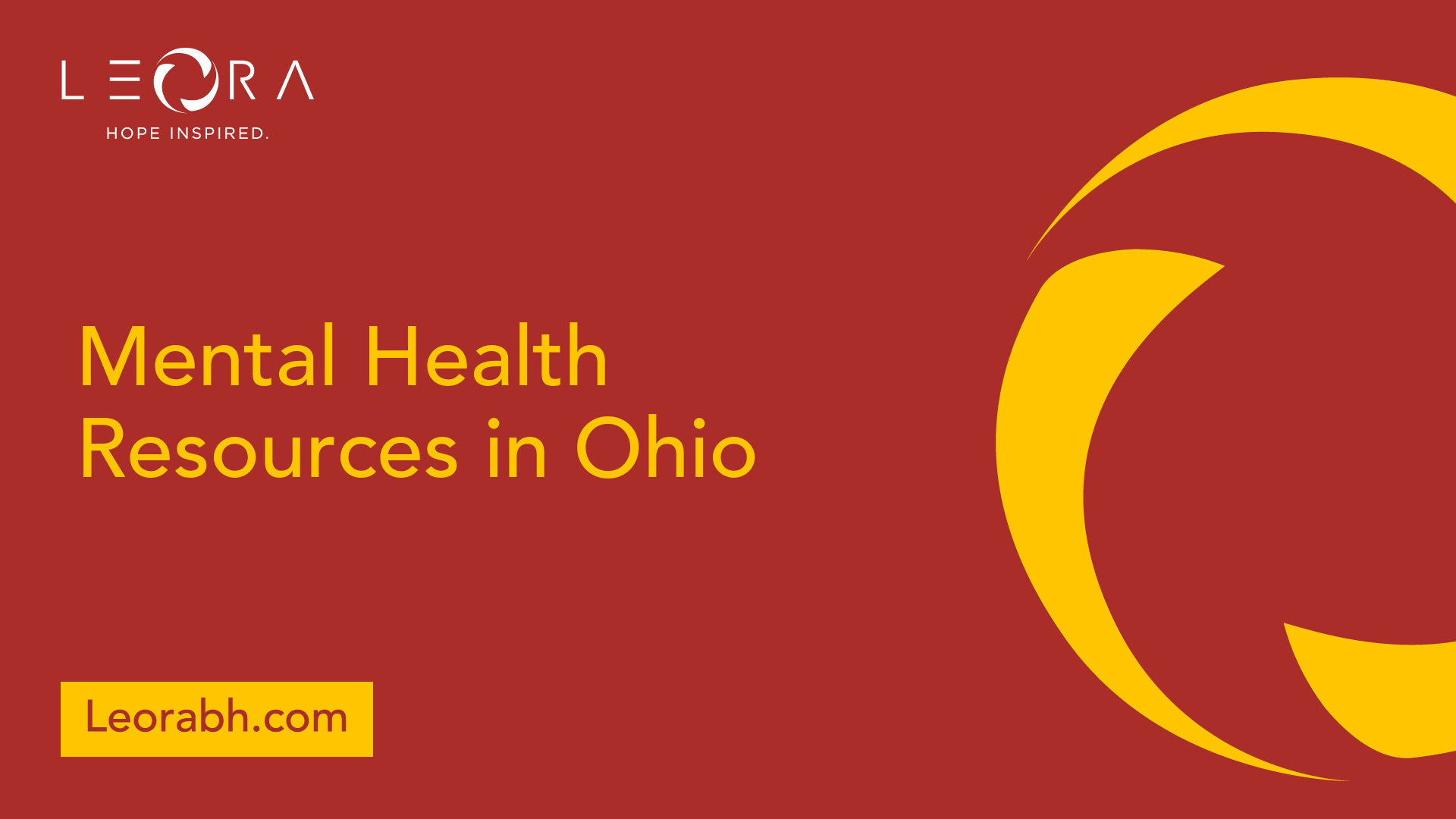
Mental Health Resources in Ohio
Navigating the landscape of family mental health resources in Ohio involves addressing behavioral health disparities and engaging in suicide prevention initiatives tailored to the diverse needs of the state's population.
Behavioral Health Disparities
A recent report by the Ohio Department of Health (ODH) highlighted significant behavioral health disparities in Ohio, particularly in rural regions and Appalachia. The study revealed that 14 out of the 15 counties with the highest suicide rates in the state were located in these underserved areas [1].
Challenges in these regions are further compounded by a shortage of mental health professionals, creating barriers to accessing timely behavioral health treatment. To bridge this gap, initiatives that focus on integrating mental health services into primary care and enhancing telehealth options are being implemented [1]. These efforts aim to improve accessibility and quality of mental health services for all Ohio residents.
Suicide Prevention Initiatives
To address the concerning issue of suicide rates in Ohio, suicide prevention initiatives have been prioritized. The Ohio Suicide Prevention Foundation’s (OSPF) 2024-26 prevention plan emphasizes the need to strengthen existing suicide prevention strategies, particularly in rural and Appalachian Ohio.
Efforts are underway to enhance mental health education, increase access to crisis intervention services, and promote community-based programs that support individuals and families affected by suicide. By raising awareness, providing training, and implementing evidence-based interventions, Ohio is working towards reducing suicide rates and promoting mental wellness throughout the state.
When exploring Ohio’s mental health support options, it's essential to consider the unique challenges faced by different regions and communities. By addressing behavioral health disparities and implementing effective suicide prevention initiatives, Ohio is taking proactive steps to improve mental health outcomes and support the well-being of individuals and families across the state.
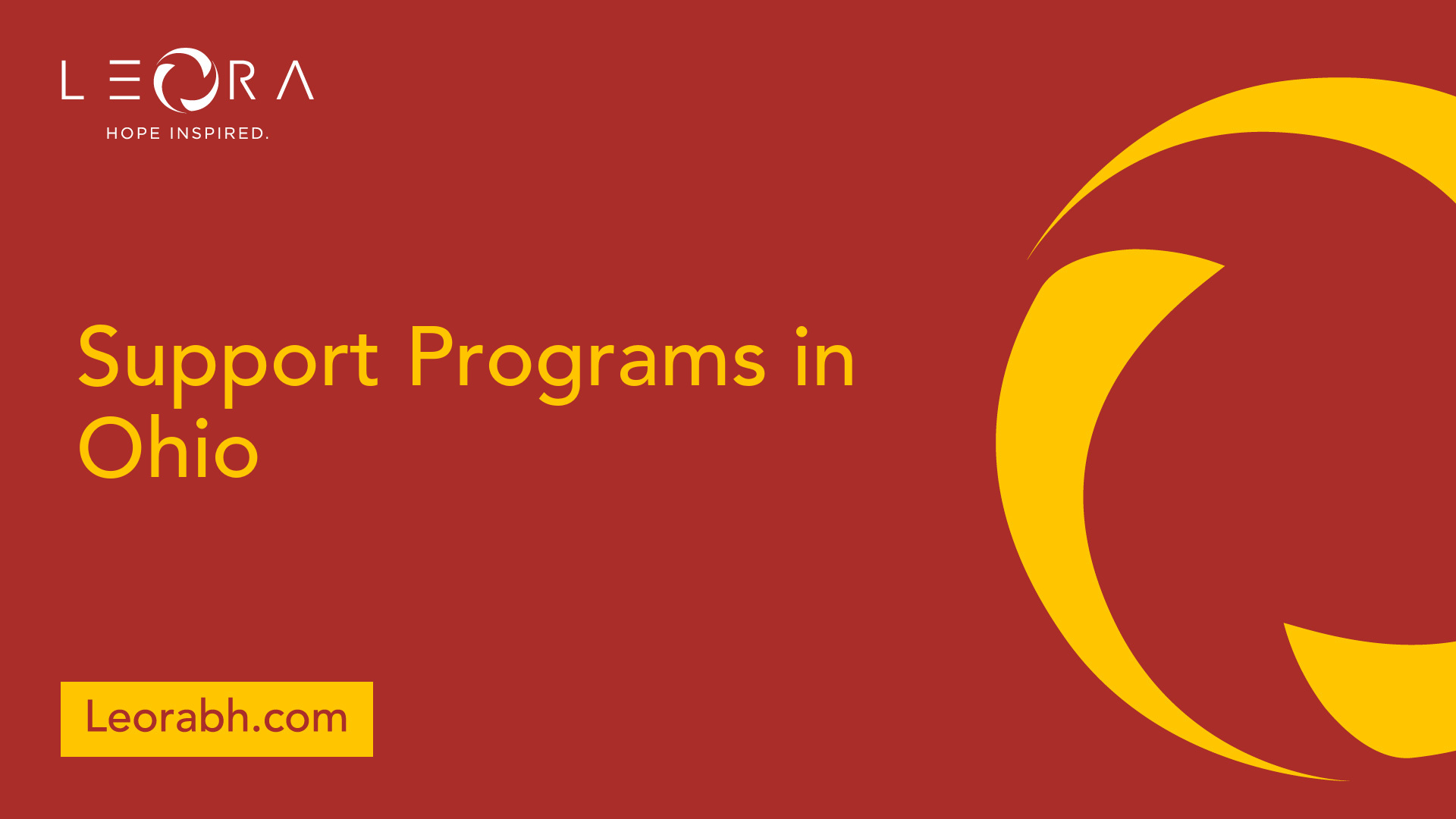
Support Programs in Ohio
In Ohio, families seeking mental health resources can benefit from several support programs tailored to enhance understanding, coping skills, and support for individuals and families affected by mental health challenges. Notably, two prominent programs are NAMI Educational Programs and Family Resource Center Support.
NAMI Educational Programs
NAMI Ohio offers a comprehensive range of educational programs designed to support families, partners, and friends of individuals coping with mental illness. These programs include:
- NAMI Basics: A free education program for parents and caregivers of children and adolescents experiencing mental health challenges. It equips participants with the knowledge and skills to navigate the complexities of the mental health system.
- NAMI Family-to-Family: An in-depth course for family members, partners, and friends of individuals living with mental illness. The program covers various aspects of mental health conditions, treatment options, and practical strategies for providing support.
- NAMI Homefront: Specifically designed for families of military service members and veterans, this program addresses the unique challenges faced by these individuals in dealing with mental health issues.
- NAMI Peer-to-Peer: A recovery-focused educational program led by trained individuals living with mental illness. Participants receive guidance on personal wellness strategies, relapse prevention, and goal setting.
- NAMI Family & Friends: This program provides valuable information to help family members, friends, and loved ones understand and support individuals dealing with mental health challenges.
By participating in these educational programs, families can increase their understanding of mental illness, acquire effective coping mechanisms, and feel empowered to advocate for their loved ones.
Family Resource Center Support
In addition to NAMI programs, families in Ohio can also benefit from Family Resource Center Support provided by organizations like Ohio Family Counseling. These centers offer a variety of mental health services tailored to meet the needs of families, including:
- Individual Counseling: One-on-one therapy sessions tailored to address specific mental health concerns and provide personalized support.
- Family Counseling: Counseling sessions that involve family members to address relational dynamics, communication issues, and emotional support within the family unit.
- Couples' Counseling: Therapy sessions focused on enhancing communication, resolving conflicts, and strengthening relationships for couples facing mental health challenges.
Furthermore, Ohio Family Counseling offers specialized services such as Therapeutic Behavioral Services, Community Psychiatric Support Services, and Psychosocial Rehabilitation, catering to families seeking comprehensive mental health assistance.
By engaging with these support programs in Ohio, families can access valuable resources, guidance, and professional assistance to navigate the complexities of mental health challenges and foster a supportive environment for their loved ones.
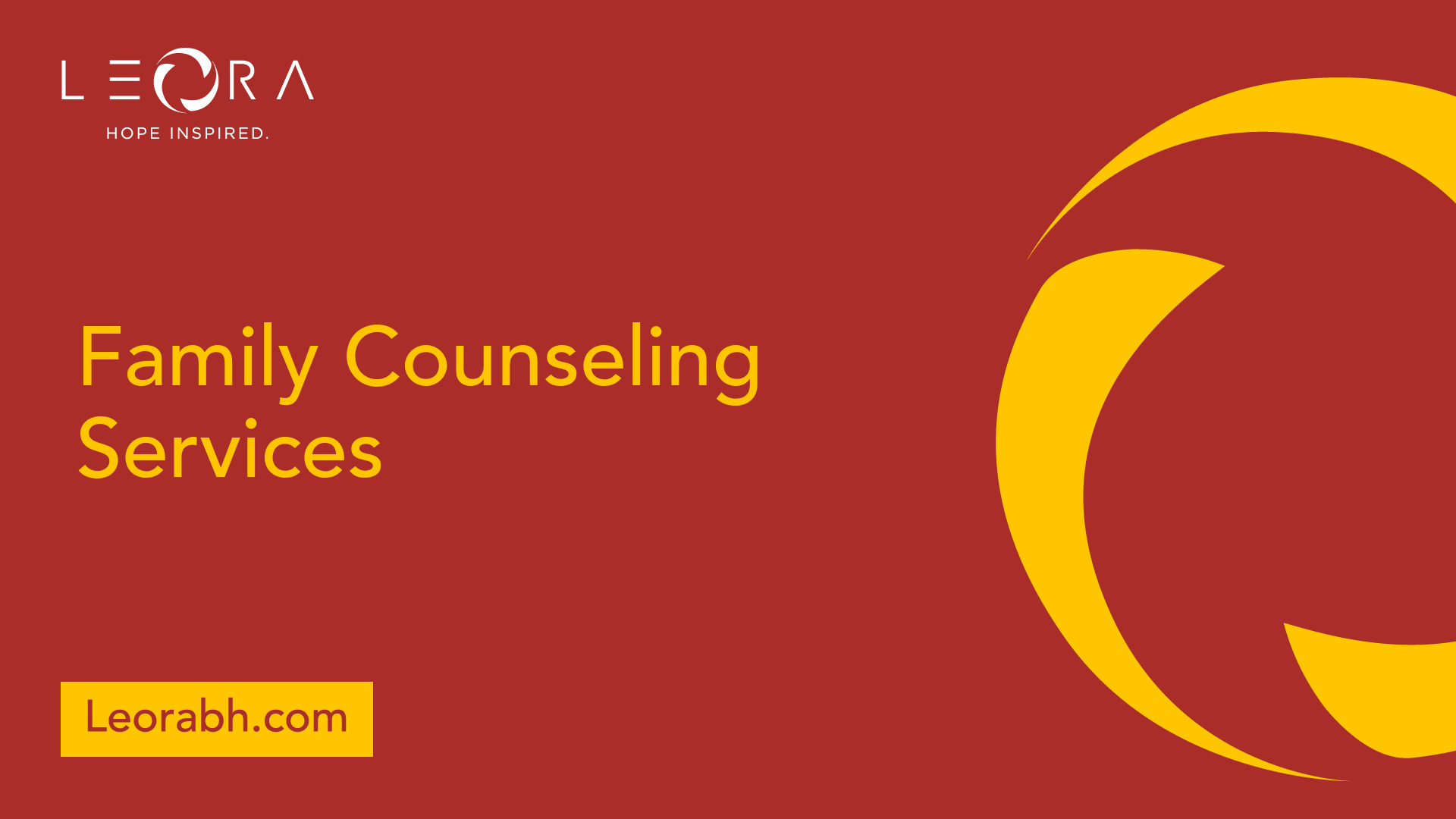
Family Counseling Services
For families in Ohio seeking mental health assistance, there are dedicated services that focus on improving family dynamics and individual well-being. Two prominent providers of family counseling services in Ohio are Ohio Family Counseling Services and OhioGuidestone Family Counseling.
Ohio Family Counseling Services
Ohio Family Counseling offers a range of therapeutic services tailored to meet the unique needs of families. These services include:
Services Offered
- Therapeutic Behavioral Services:
Focused on modifying behaviors and providing support for emotional and psychological challenges. - Community Psychiatric Support Services:
Offers mental health support and assistance within the community to help individuals manage daily living and mental health symptoms. - Psychosocial Rehabilitation:
Aims to improve an individual’s ability to function in daily life through skill-building, education, and community involvement.
In addition to therapeutic interventions, Ohio Family Counseling provides Prevention Services, Employee Assistance Programming, and Training on various topics. This comprehensive approach suggests a holistic strategy towards supporting family mental health in Ohio [2].
OhioGuidestone Family Counseling
OhioGuidestone is another key provider of family counseling services in Ohio. Their family counseling services aim to enhance life situations through promoting healthy communication and connecting families with community resources. OhioGuidestone's approach targets the core issues affecting families, fostering stronger relationships and improved mental well-being.
OhioGuidestone's family counseling services have demonstrated success in managing complex mental health challenges within families. Moreover, the institution actively helps in treating Prolonged Grief Disorder, as identified by the National Institute of Mental Health, by assisting families in responding to prolonged grief after significant loss.
By offering specialized programs and services, both Ohio Family Counseling Services and OhioGuidestone are instrumental in providing essential support for families facing mental health issues in Ohio. Their focus on enhancing family relationships and individual well-being plays a vital role in addressing mental health concerns and promoting overall family harmony.
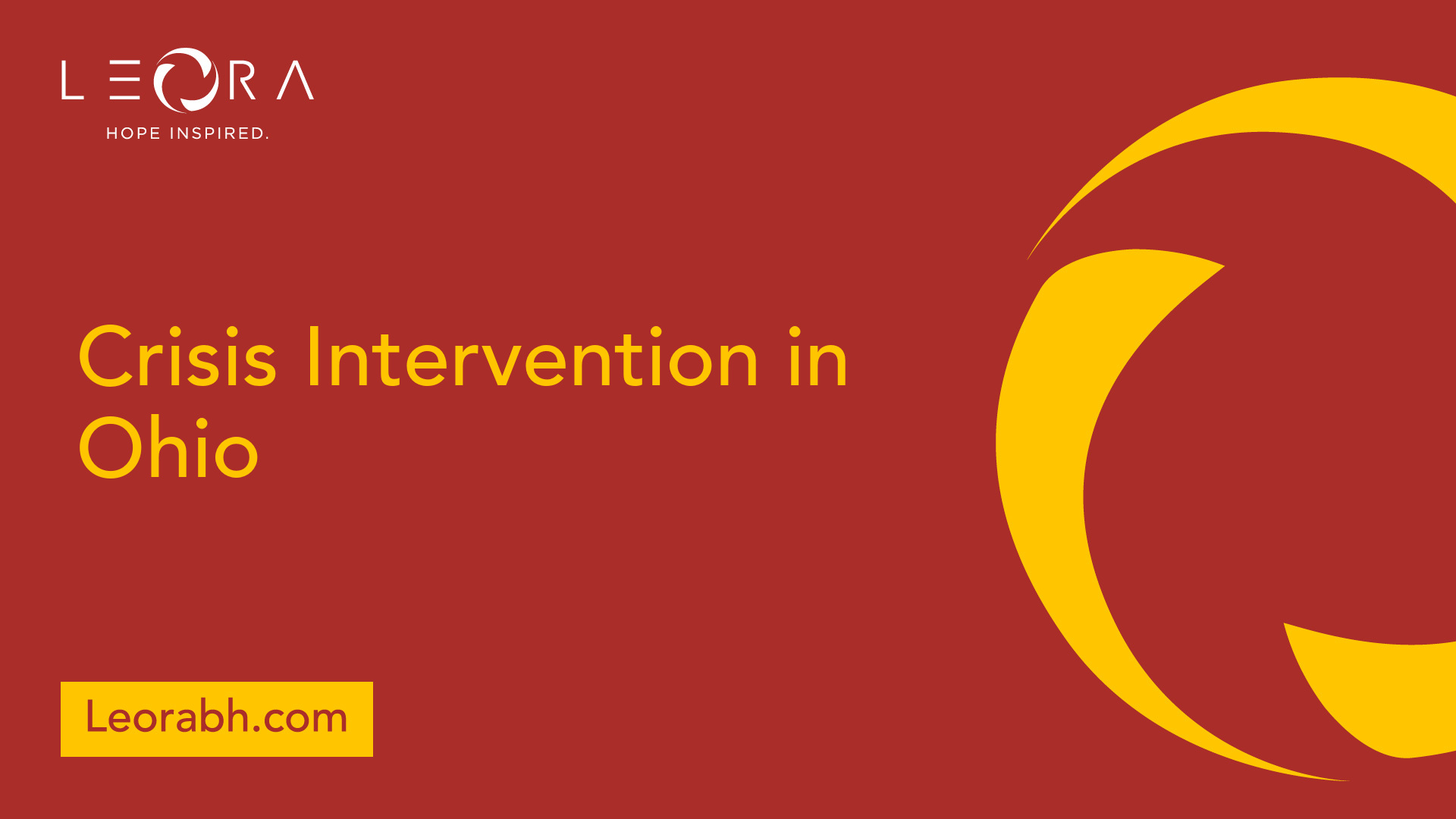
Crisis Intervention in Ohio
In Ohio, crisis intervention services play a pivotal role in providing immediate assistance and support to individuals facing mental health crises. Two key resources available in Ohio for crisis intervention are the NAMI Crisis Intervention Team and Ohio Crisis Helplines.
NAMI Crisis Intervention Team
NAMI Ohio is actively engaged in the Crisis Intervention Team (CIT) program, which serves as a police-based pre-arrest jail diversion initiative aimed at creating a seamless connection between law enforcement and emergency mental health services. The CIT program involves training CIT officers on various aspects including psychiatric disorders, substance abuse issues, de-escalation techniques, legal considerations related to mental health, and empathy training from individuals with mental illness.
Working closely with communities, mental health boards, providers, and law enforcement agencies across the state, NAMI Ohio plays a crucial role in establishing and expanding CIT training programs to ensure effective crisis intervention strategies are in place. Through grants and technical assistance, NAMI Ohio facilitates the planning and implementation of CIT programs to enhance the response to mental health crises.
Ohio Crisis Helplines
In addition to structured programs like the CIT, Ohio provides crisis intervention resources through helplines and textlines managed by organizations such as NAMI. These helplines offer immediate support and guidance for individuals in Ohio who are experiencing mental health crises and require urgent assistance. These resources act as a crucial lifeline for those in distress, providing a confidential and accessible platform for individuals to seek help when needed.
It is essential for individuals in crisis to know that help is available and accessible. Ohio's crisis helplines serve as a vital link to professional support, offering reassurance and assistance during times of emotional distress. Furthermore, the Family Resource Center of Northwest Ohio also contributes to crisis care by providing tailored services through their call center, ensuring individuals receive the necessary support when they are ready to take steps towards recovery.
During times of crisis, immediate intervention and support can make a significant difference in preventing escalation and promoting well-being. By leveraging resources like the NAMI Crisis Intervention Team and Ohio Crisis Helplines, individuals in Ohio can access crucial assistance and guidance when facing mental health challenges.
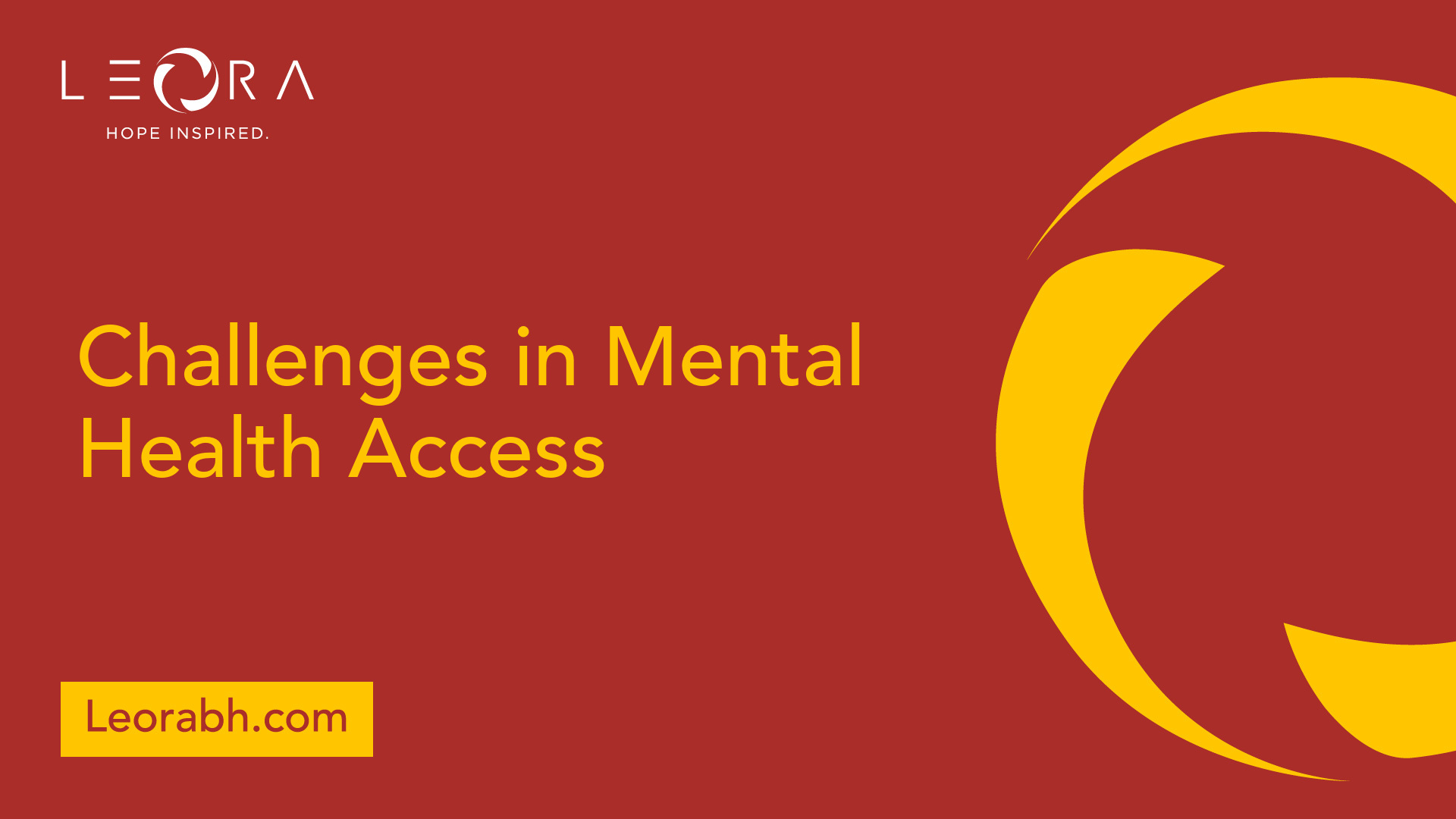
Challenges in Mental Health Access
In Ohio, accessing mental health services can present significant challenges, particularly in rural and Appalachian regions where there is a shortage of mental health professionals. This scarcity makes it difficult for individuals to receive timely behavioral health treatment.
Access to Mental Health Services
The shortage of mental health professionals in regions of Ohio, such as Appalachia and rural areas, poses a barrier to individuals seeking behavioral health care. Limited availability of healthcare providers hinders access to essential mental health services, creating disparities in mental health outcomes and treatment effectiveness.
To address these challenges, initiatives by organizations like the Substance Abuse and Mental Health Services Administration (SAMHSA) focus on expanding treatment, recovery programs, and workforce support to enhance emergency crisis services for those in need. Efforts are being made to bridge the gap in mental health access and improve outcomes for individuals across Ohio.
Telehealth Services in Ohio
Telehealth services have emerged as a vital solution to improve access to mental health care in Ohio, especially in rural communities with limited healthcare resources. Organizations like Hopewell Health Centers offer telepsychiatry services to children and adolescents in outlying counties, expanding the reach of behavioral health resources [7].
The Bipartisan Policy Center advocates for closing the digital divide by providing broadband access to rural communities to facilitate the use of telehealth services for mental health care. Telehealth presents an opportunity to reach individuals who may otherwise struggle to access in-person care, offering a convenient and effective alternative to traditional therapy sessions.
By embracing telehealth services and leveraging technology, Ohio is taking steps to enhance mental health access and alleviate the disparities in behavioral health care. These innovations aim to overcome geographical barriers and ensure that individuals across the state have the support they need to prioritize their mental well-being.
Youth Mental Health in Ohio
Concerns surrounding youth mental health in Ohio have become increasingly prevalent due to a significant surge in suicides among young individuals between the ages of 10 to 24. Data from the Ohio Department of Health reveals a troubling statistic: a 56% increase in youth suicides in Ohio between 2007 and 2018, with a young person tragically losing their life to suicide every 33 hours in the state. Alarmingly, suicide has emerged as the leading cause of death among 10- to 14-year-olds in Ohio.
Increase in Youth Suicides
The rise in youth suicides underscores the urgent need for enhanced mental health support and services tailored specifically for young individuals in Ohio. Addressing the underlying factors contributing to this concerning trend requires a comprehensive approach that encompasses prevention, early intervention, and access to appropriate mental health resources.
Mental Health Services for Youth
To combat the growing mental health crisis among Ohio's youth, various organizations and initiatives are extending essential mental health services to support young individuals facing emotional and psychological challenges. It is vital for families, educators, and communities to be equipped with the necessary knowledge and resources to identify warning signs of mental health issues in youth and provide timely assistance.
In response to the escalating youth mental health concerns, programs such as teen mental health treatment services in Ohio are being enhanced to address the unique needs of adolescent individuals grappling with mental health issues. These programs aim to offer a range of therapeutic interventions, counseling support, and educational resources to guide young individuals towards improved mental well-being.
Furthermore, affordable mental health services in Ohio are being expanded to ensure that financial constraints do not hinder youth from accessing the critical care they require. By promoting affordability and accessibility in mental health services for young individuals, Ohio is taking proactive measures to safeguard the mental well-being of its youth population.
As Ohio continues its efforts to address the pressing challenges surrounding youth mental health, it remains crucial for stakeholders at all levels to collaborate, innovate, and advocate for the importance of prioritizing mental health support for the state's young generation. By fostering a supportive environment that promotes mental wellness and resilience, Ohio can work towards a future where youth mental health is a top priority, ensuring that every young individual has the opportunity to thrive and flourish.
Regional Mental Health Support
In Southeast Ohio, there are specific challenges when it comes to accessing mental health resources. The region faces unique barriers related to mental health services, including issues with accessibility, affordability, and stigma. Individuals in Southeast Ohio may encounter difficulties in finding adequate support for their mental health needs and navigating the available resources.
NAMI Support Groups
NAMI Ohio plays a crucial role in providing support groups for individuals caring for those with various mental health conditions. These support groups cater to individuals dealing with conditions such as anxiety, depression, PTSD, OCD, ADHD, and bipolar disorder. The support groups are offered on specific days of the week in different counties, including Delaware and Union Counties.
NAMI's Family Support Group in Ohio is specifically designed for adults with loved ones who have experienced symptoms of a mental health condition. The peer-led group aims to offer support and understanding to participants. By sharing experiences and insights, individuals can gain a sense of community and coping strategies for managing the challenges associated with supporting a family member with a mental health condition.
The Family Support Group provides a safe and empathetic environment for individuals to share their experiences, develop supportive relationships, and engage in fruitful discussions. Through these interactions, participants can find hope, empowerment, and understanding, fostering a sense of community and solidarity among individuals facing similar circumstances. Overall, NAMI's Family Support Group in Ohio serves as a valuable resource for individuals seeking emotional support, guidance, and connection in their mental health journey.
Mental Health Training in Ohio
In Ohio, there are various training programs aimed at enhancing mental health awareness and support within the community. Two key training initiatives focus on preparing individuals to effectively provide mental health assistance: Family Peer Supporter Training and Training for Community Providers.
Family Peer Supporter Training
Family Peer Supporter Training plays a vital role in equipping individuals with the skills and knowledge necessary to provide support to families, partners, and friends of individuals dealing with mental illness. Programs like NAMI Ohio's NAMI Family-to-Family program offer evidence-based classes designed to increase understanding, enhance coping skills, and empower participants to advocate for their loved ones [4]. By undergoing this training, individuals become valuable resources within their communities, offering guidance and empathy to those in need of support.
One of the essential aspects of Family Peer Supporter Training is promoting communication, understanding, and resilience among families impacted by mental health challenges. Participants learn effective strategies to navigate difficult situations, improve coping mechanisms, and foster a supportive environment for their loved ones. By completing this training, individuals gain the skills needed to provide meaningful assistance to those facing mental health issues.
Training for Community Providers
Training for Community Providers is essential for ensuring that professionals in the mental health field are equipped with the knowledge and tools to deliver quality care to individuals in need. Programs like NAMI Ohio's NAMI Peer-to-Peer program offer recovery education courses to individuals experiencing mental health challenges, promoting growth, healing, and recovery. These courses provide valuable insights into mental health conditions, treatment options, and strategies for supporting individuals on their journey to wellness.
Additionally, Crisis Intervention Team (CIT) training programs in Ohio aim to bridge law enforcement with emergency mental health services, establishing a police-based pre-arrest jail diversion program that emphasizes the importance of swift and appropriate mental health crisis intervention. Community providers who undergo CIT training gain specialized skills in recognizing and responding to mental health crises, ensuring the safety and well-being of individuals in distress.
By investing in training for both family peer supporters and community providers, Ohio continues to strengthen its mental health support network, fostering a community that is well-prepared to address mental health challenges effectively. Through ongoing education and skill-building initiatives, individuals across the state are better equipped to provide compassionate care and support to those in need.
References
[2]: http://www.ohiofamilycounseling.org/types-of-services.html
[3]: https://ohioguidestone.org/services/family-mental-health-services/family-counseling-services/
[4]: https://namiohio.org/programs/
[5]: https://namimidohio.org/support-and-education/support-groups/family-support-group/
Find Your Inner Light
Related Articles
Contact Us
Leora Behavioral Health offers a comprehensive addiction treatment programs to help you get your life back on track.
Our trained professionals will work with you to develop a personalized treatment plan that meets your unique needs. If you or someone you know is struggling with addiction, reach out to Leora Behavioral Health today.


.svg)





.svg)
.svg)
.svg)
.svg)